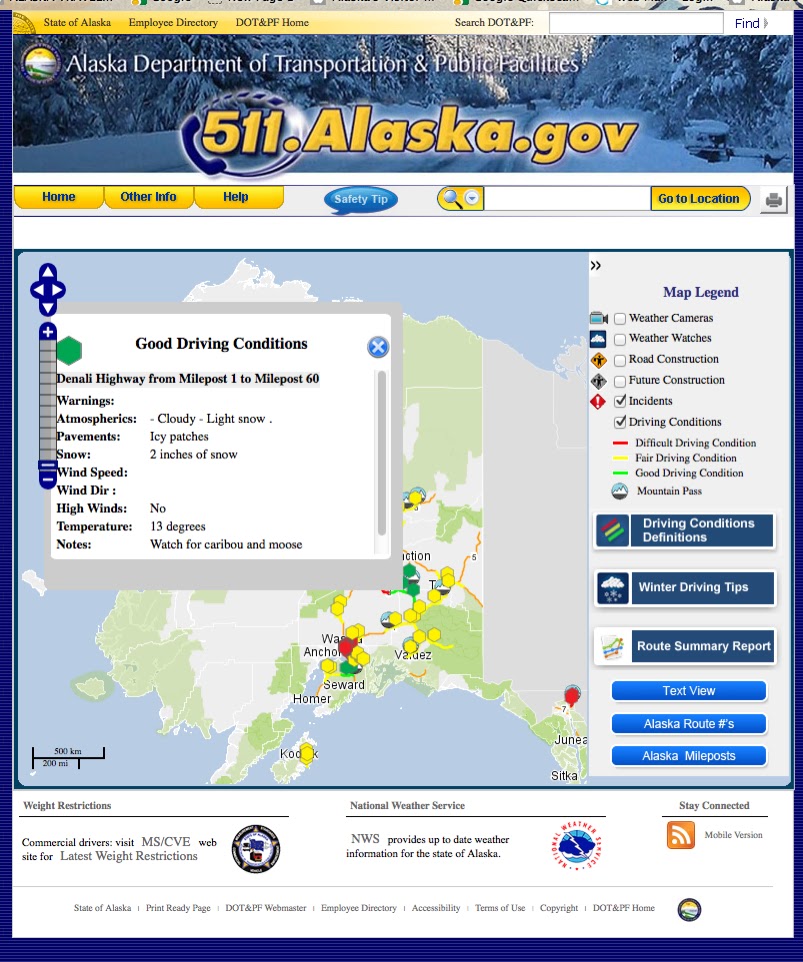Governor's Veto Of Education Funding Bill Triggers Student Walkouts All Over Alaska
ALASKA BEACON PHOTO, CLAIRE STREMPLE STORY FROM ALASKA BEACON Alaska high school students walk out of class to protest Gov. Dunleavy’s edu...
https://www.countryjournal2020.com/2024/04/governor-veto-of-education-funding-bill.html
Alaska high school students walk out of class to protest Gov. Dunleavy’s education veto
“We want the 20 legislators who voted ‘no’ to come talk to us face to face,” a student leader said at the Capitol
Their midday walkout was a cry for increased state education funding.
Students at Juneau-Douglas High School: Yadaa.at Kalé gathered outside and began to chant “Fund our future! Fund our future!” Then, with a roar of approval, they decided to walk to the Capitol building.
Dunleavy has said he would not support changing the school funding formula if other of his education policy priorities are not adopted. In news conferences he has said that education “special interests’’ are behind the calls for increased school funding, but protesting students said it’s their experience — and future — at stake.
Hundreds of students walked out in Anchorage and an estimated 100 left school in Sitka. The protest’s student organizers said high school students also walked out of class in Tok, Kodiak, Utqiagvik, Bethel, Ketchikan, Palmer, Wasilla, Fairbanks, Kake, Cordova, Skagway and Haines.
The demonstrations were organized by the Alaska Association of Student Government. Felix Myers, a senior at Sitka High School and the student representative for the state’s Board of Education and Early Development, said in a news release that students statewide recognize the importance of education funding for “themselves and future Alaskans.”
The protest was aimed specifically at the Governor’s veto of House Bill 140 and the failure of 20 legislators to override it. Some of legislators who voted to sustain the veto have said they want the Legislature to continue to work on the funding and other education policies.
Cadence Ward, a JDHS junior, said she joined the walkout because she knows a lot of teachers that may not have jobs next year. Some teachers she had hoped to have next year may be gone.
“It really bothers me. Because they’re such great teachers. It doesn’t make any sense to just get rid of them,” she said. “And I sympathize with a lot of juniors who might not have teachers that they’ve had for all three years and need recommendation letters (for college).”
Juneau School District Superintendent Frank Hauser watched from the parking lot as the students chanted their way down the street.
“I’m here to watch and support — not support, supervise — and keep students safe,” he said. “Recognizing their First Amendment rights.”
The Juneau school district is consolidating schools to fix a budget deficit. Next year the city’s high schoolers — currently divided between Thunder Mountain High School and Juneau-Douglas High School – will all be at JDHS.
Acey Wall said that is tough for sports teams because the two high schools would often compete.
“I just feel really bad for everyone, especially people who are doing sports and feel really strongly for their sport and their team and are losing that connection they had,” Wall said.
Her friend Kensey Jenkins said she wants more funding for schools because her French class can’t afford basic classroom supplies, like new markers for the whiteboard.
“I feel like it’s really tough that we have to make compromises,” she said.
The students’ red “Raise the BSA” signs were bright flashes in the gray, drizzling afternoon, referring to the base student allocation formula used to fund schools. They held them high as they passed the quiet facade of the Governor’s Mansion. Passing drivers honked and waved.
Their procession held up traffic on Main Street and Juneau police officers kept an eye out as they filed through the crosswalk. Proposed legislation from Dunleavy’s office would tighten the penalties for traffic obstructing protests, but it has not become law.
Once at the Capitol, class president Rachel Wood raised her bullhorn: “I want the 20 legislators who voted ‘no’ to come talk to us face to face!” she yelled.
None appeared, though several staunch education funding supporters, including Reps. Andrew Gray, D-Anchorage, and Andi Story, D-Juneau, joined them on the sidewalk.
“Where are you?” Wood taunted. “We just want to talk!” Then, the students crossed the street and streamed through the building’s double doors.
Security at the Capitol estimated 75-100 students came through the lobby and flooded up the stairs. Sens. Jesse Kiehl, D-Juneau, and Scott Kawasaki, D-Fairbanks, were waylaid on the stairwell as they returned to their offices from the Senate floor session.
Kiehl said the students’ action was “important” and “symbolic.”
“Looking at these students — these are straight A, honors students. These are students who are not usually cutting class,” he said. “I think this really matters. It shows that these students are committed to their view, committed to the future of younger students —” He was drowned out by their chants.
Kawasaki speculated that his colleagues who voted to uphold the veto were “hiding” in their offices rather than speak with the students.
“It’s really gratifying to see so many kids out here. Heck, If I were 18, I would be out there with them,” Kawasaki said with a laugh.
After chanting outside the governor’s office, the students finally crowded into a House Finance Committee meeting. The temperature in the crowded room increased perceptibly. The students were quiet, but their presence slightly distracted lawmakers from a hearing of a bill proposed by Rep. Tom McKay, R-Anchorage, that would give oil and gas companies in Cook Inlet free access to state seismic data.
After the meeting, students gathered around Rep. Julie Coulombe, R-Anchorage, to ask why she voted to uphold the veto and listened politely while she explained her reasoning. Coulombe has said it was clear Dunleavy would veto the funding in the annual budget bill even if the policy bill became law.
McKay, another “no” vote, noted that legislators are still trying to get more funding for schools. His education proposal, House Bill 392, would increase the BSA by $680 — the same amount as the bill that Dunleavy vetoed.
As Rep. Bryce Edgmon, I-Dillingham and a vote to overturn the education funding veto, walked down the hall, he eyed the students on the stairwell and cracked a joke: “They want a bigger PFD?” He said he was not aware if students from his district walked out of class.
House Minority Leader Rep. Calvin Schrage, I-Anchorage and another vote to overturn the veto, stood in the doorway of his office to watch.
“It’s democracy in action, students having a say in their own future and their own education,” he said.
“I hope we can do good by ‘em.”
The protest was aimed specifically at the Governor’s veto of House Bill 140 and the failure of 20 legislators to override it. Some of legislators who voted to sustain the veto have said they want the Legislature to continue to work on the funding and other education policies.
Cadence Ward, a JDHS junior, said she joined the walkout because she knows a lot of teachers that may not have jobs next year. Some teachers she had hoped to have next year may be gone.
“It really bothers me. Because they’re such great teachers. It doesn’t make any sense to just get rid of them,” she said. “And I sympathize with a lot of juniors who might not have teachers that they’ve had for all three years and need recommendation letters (for college).”
Juneau School District Superintendent Frank Hauser watched from the parking lot as the students chanted their way down the street.
“I’m here to watch and support — not support, supervise — and keep students safe,” he said. “Recognizing their First Amendment rights.”
The Juneau school district is consolidating schools to fix a budget deficit. Next year the city’s high schoolers — currently divided between Thunder Mountain High School and Juneau-Douglas High School – will all be at JDHS.
Acey Wall said that is tough for sports teams because the two high schools would often compete.
“I just feel really bad for everyone, especially people who are doing sports and feel really strongly for their sport and their team and are losing that connection they had,” Wall said.
Her friend Kensey Jenkins said she wants more funding for schools because her French class can’t afford basic classroom supplies, like new markers for the whiteboard.
“I feel like it’s really tough that we have to make compromises,” she said.
The students’ red “Raise the BSA” signs were bright flashes in the gray, drizzling afternoon, referring to the base student allocation formula used to fund schools. They held them high as they passed the quiet facade of the Governor’s Mansion. Passing drivers honked and waved.
Their procession held up traffic on Main Street and Juneau police officers kept an eye out as they filed through the crosswalk. Proposed legislation from Dunleavy’s office would tighten the penalties for traffic obstructing protests, but it has not become law.
Once at the Capitol, class president Rachel Wood raised her bullhorn: “I want the 20 legislators who voted ‘no’ to come talk to us face to face!” she yelled.
None appeared, though several staunch education funding supporters, including Reps. Andrew Gray, D-Anchorage, and Andi Story, D-Juneau, joined them on the sidewalk.
“Where are you?” Wood taunted. “We just want to talk!” Then, the students crossed the street and streamed through the building’s double doors.
Security at the Capitol estimated 75-100 students came through the lobby and flooded up the stairs. Sens. Jesse Kiehl, D-Juneau, and Scott Kawasaki, D-Fairbanks, were waylaid on the stairwell as they returned to their offices from the Senate floor session.
Kiehl said the students’ action was “important” and “symbolic.”
“Looking at these students — these are straight A, honors students. These are students who are not usually cutting class,” he said. “I think this really matters. It shows that these students are committed to their view, committed to the future of younger students —” He was drowned out by their chants.
Kawasaki speculated that his colleagues who voted to uphold the veto were “hiding” in their offices rather than speak with the students.
“It’s really gratifying to see so many kids out here. Heck, If I were 18, I would be out there with them,” Kawasaki said with a laugh.
After chanting outside the governor’s office, the students finally crowded into a House Finance Committee meeting. The temperature in the crowded room increased perceptibly. The students were quiet, but their presence slightly distracted lawmakers from a hearing of a bill proposed by Rep. Tom McKay, R-Anchorage, that would give oil and gas companies in Cook Inlet free access to state seismic data.
After the meeting, students gathered around Rep. Julie Coulombe, R-Anchorage, to ask why she voted to uphold the veto and listened politely while she explained her reasoning. Coulombe has said it was clear Dunleavy would veto the funding in the annual budget bill even if the policy bill became law.
McKay, another “no” vote, noted that legislators are still trying to get more funding for schools. His education proposal, House Bill 392, would increase the BSA by $680 — the same amount as the bill that Dunleavy vetoed.
As Rep. Bryce Edgmon, I-Dillingham and a vote to overturn the education funding veto, walked down the hall, he eyed the students on the stairwell and cracked a joke: “They want a bigger PFD?” He said he was not aware if students from his district walked out of class.
House Minority Leader Rep. Calvin Schrage, I-Anchorage and another vote to overturn the veto, stood in the doorway of his office to watch.
“It’s democracy in action, students having a say in their own future and their own education,” he said.
“I hope we can do good by ‘em.”
















